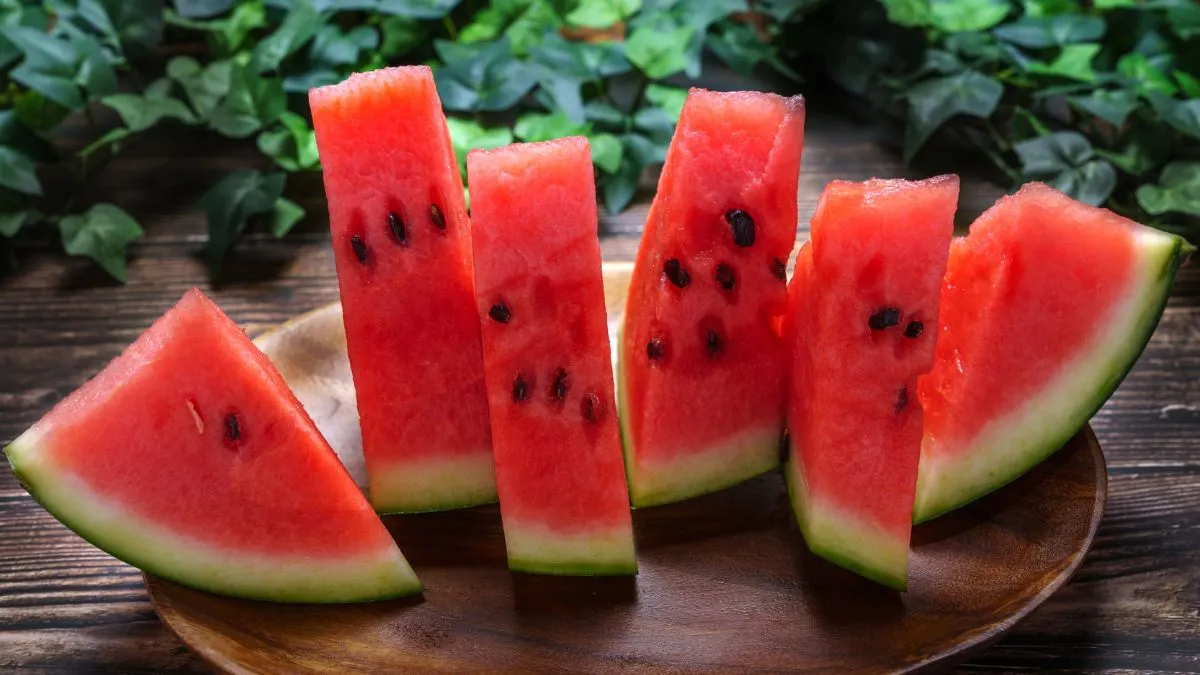- By Iram Hussain
- Wed, 04 Jun 2025 01:23 PM (IST)
- Source:JND
Watermelon is a refreshing summer fruit enjoyed by people of all ages. This hydrating fruit is praised for its rich water content and nutrients like vitamin C, lycopene and potassium. It helps to quench thirst, reduce inflammation and support overall health. When you cut a fresh watermelon, you'll likely notice two kinds of seeds i.e. black and white. Interestingly, black watermelon seeds are mature and fertile while white seeds are immature. However, many people split or remove these seeds before consumption while being unaware of their nutritional value.
But the surprising fact is watermelon seeds are safe to eat. Yes, you heard it right! These seeds are edible and are rich in protein, magnesium and zinc. Let's understand how these watermelon seeds benefit our health.
Benefits Of Watermelon Seeds
Boost Hydration
Watermelon seeds are rich in essential minerals like magnesium, potassium and sodium which help regulate fluid balance and prevent dehydration-related issues. These minerals also support nerve and muscle function while reducing the risk of dizziness, weakness and cramps caused by fluid loss.
ALSO READ: 5 Simple Ways To Check If Your Watermelon Is Real Or Fake
Support Digestion
These seeds contain soluble and insoluble fibre, promoting regular bowel movements and preventing constipation. The fibre acts as a prebiotic, feeding good bacteria in the gut and supporting a balanced microbiome. This helps maintain overall gut health, boosting the immune system and enhancing nutrient absorption.
Improves Skin Health
They are rich in zinc, vitamin E and antioxidants that help to promote collagen production, wound healing and clearer skin. Additionally, omega-6 fatty acids in the seeds hydrate and nourish the skin, reducing dryness, flakiness and irritation.

Benefits of eating watermelon seeds (Image Credits: Canva)
Manages Blood Sugar Levels
Black watermelon seeds have been found to be beneficial in controlling diabetes. They help reduce elevated blood sugar levels, making them a nutritious snack option for diabetic patients.
ALSO READ: BTS Jin Can’t Say No To This Summer Fruit; Here’s Why You Shouldn’t Either
Low In Calories
Seeds are remarkably low in calories, making them an excellent addition to a weight management diet. With their nutrient-dense profile and minimal calorie count, these seeds provide a guilt-free snacking option, supporting overall health without compromising on calorie intake.
What To Keep In Mind?
When consuming watermelon seeds, it's essential to practice moderation. Eating large quantities, especially for those not accustomed to it may lead to digestive issues like constipation or bloating. To avoid discomfort, it's recommended to start with small amounts and gradually increase consumption, allowing the body to adjust and minimise potential adverse effects.
Disclaimer: This content, including suggestions and advice, provides generic information only. It is in no way a substitute for qualified medical opinion. Always consult a specialist or your own doctor for more information before making any drastic changes in your lifestyle.


